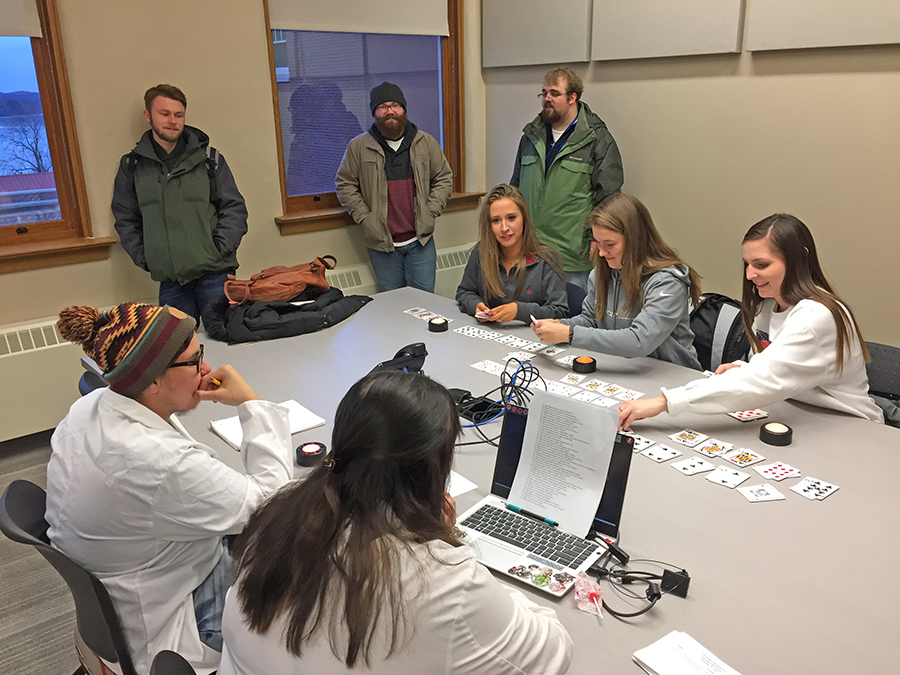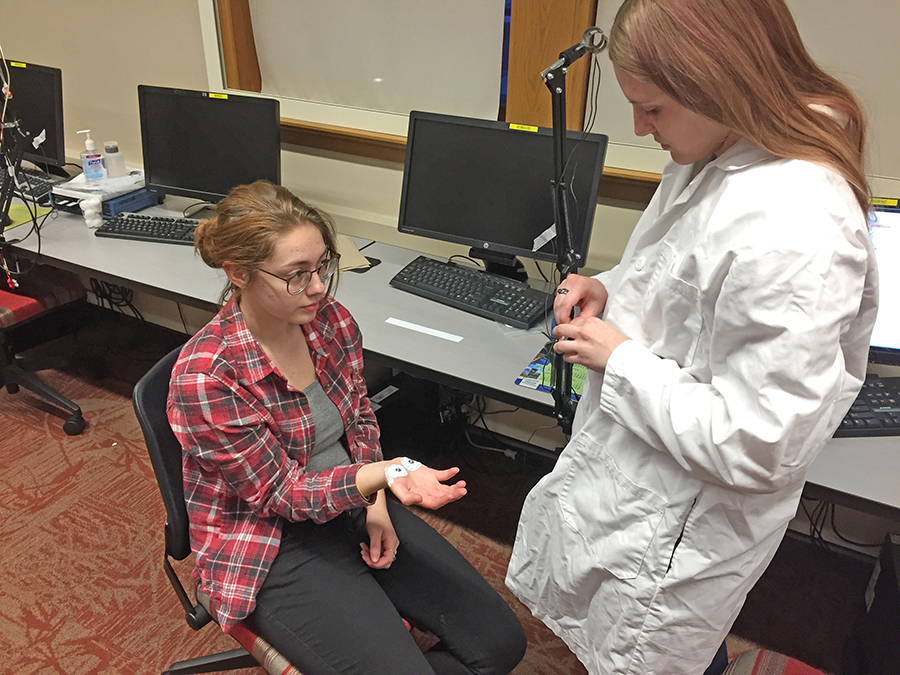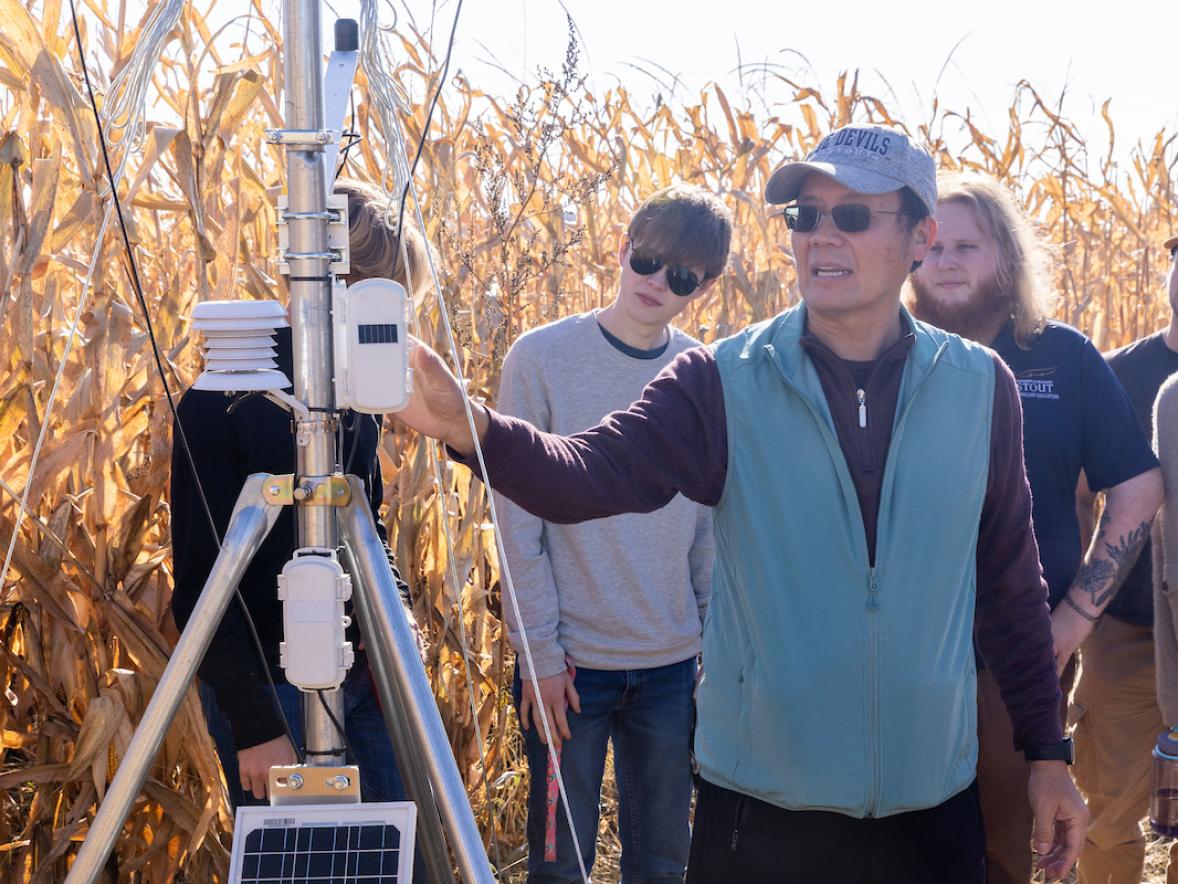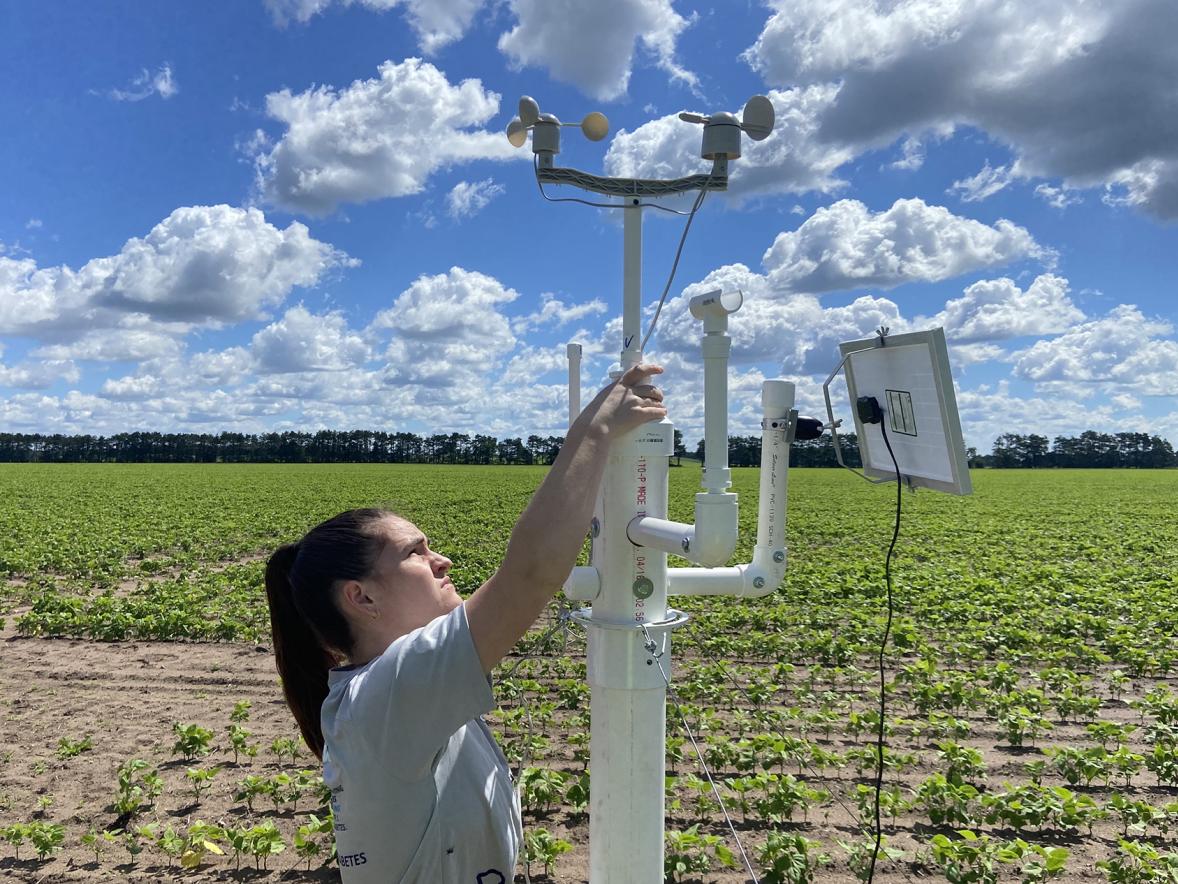Who is the vice president of the United States? Who is pictured on the penny? What does the Earth revolve around?
Easy questions for most University of Wisconsin-Stout students — but perhaps not if they are trying to match playing card suits and playing card numbers while being asked the questions and trying to hit a buzzer to answer.
“I forgot to hit the buzzer,” said Kaylee Sutliff, a senior psychology major from Menomonie, laughing.
Kate Peterson, a junior psychology major from Merrill, started slow and picked up speed as the test continued but then forgot to multitask. “I was kind of rattled at first,” she said. “I got better at first, and then I forgot to sort my cards.”

Although some people may claim they are good at multitasking, they aren’t, Peterson said. “People say they are listening to music while they study. They aren’t. Their brain bounces back and forth between the music and studying.”
UW-Stout has about 200 students majoring in psychology. They decided to host a myth-busters event Nov. 12 in Harvey Hall to increase awareness about research they are doing and help educate others, said Kailey Kraus, a senior from Janesville and president of the UW-Stout chapter of Psi Chi.
“We just wanted to provide an opportunity for people to learn more about psychology and some of the myths people believe,” Kraus said.
In another room at Harvey Hall, A.J. Ja Doul and Erika Tillmann, both senior psychology students, donned white lab coats and tested fellow students to see if they could detect when someone was lying.
“If people are nervous, their heart rate will go up or they will sweat,” said Tillmann of Hutchinson, Minn. “We can tell if people are lying about 50% of the time based on just guessing.”
Ja Doul, of Marshfield, attached electrodes to sophomore psychology student Kat Hera, of Green Bay. Hera intentionally lied on a test question, yet the electrodes did not indicate anything different. “Lie detectors don’t work,” Hera said. “They are part of the bogus pipeline.”

In another room, students showed a video after giving participants a set of questions they said they were going to ask. Instead, they asked other questions, demonstrating memory is not like a movie that can be replayed to come up with the answers.
The event was co-sponsored by the Psi Chi chapter, the international honor society in psychology, and the UW-Stout Psychology Club.
The students picked three common myths to debunk, said Kathryn Hamilton, UW-Stout psychology professor and psychology department chair. “This is an opportunity for others to understand our research and the human condition.”
Posters highlighting recent research from the psychology department also were featured.
UW-Stout also offers minors in cognitive neuroscience, psychology and human resource management; professional development certificates in evaluation studies, human resource management, and institutional research ; and a master’s degree in applied psychology.
###
Photos
UW-Stout students Kaylee Sutliff, at left, Kate Peterson and Caitlin Solie attempt to multitask by sorting playing cards and answering questions at the same time during a psychology myth-busting event.
Ja Doul hooks up electrodes to Hera’s hand to ready for a test.






